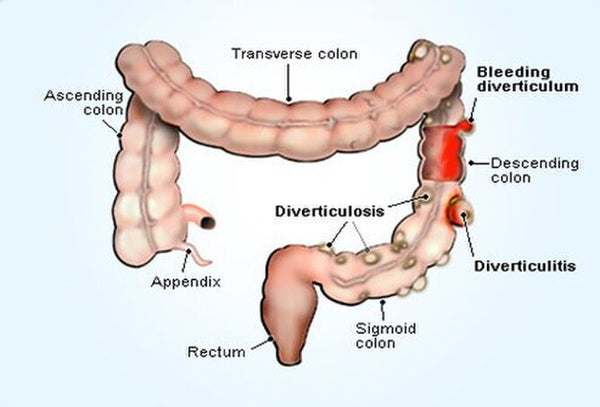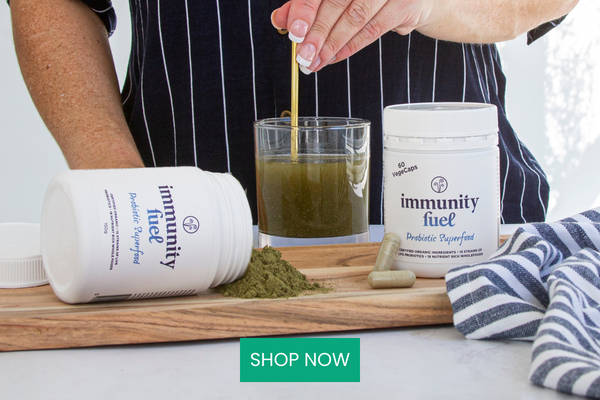ANZAC DAY 2024 - Due to the public holiday all orders placed from from 25th to 28th April will be posted on Monday 29th April.
ANZAC DAY 2024 - Due to the public holiday all orders placed from from 25th to 28th April will be posted on Monday 29th April.
Probiotics & Diverticulitis
December 07, 2017 2 min read

What is Diverticulitis?
Diverticulitis is a condition that occurs in the digestive tract when pouches form in the wall of the colon and these get inflamed or infected. This can result in painful symptoms such as stomach pain, bloating, constipation or diarrhoea and even fever, chills, nausea and vomiting.
This condition most usually occurs due to a lack of fibre in the diet, which can help create the pouches, and build up of bad bacteria which can then cause the inflammation.
Diverticulitis is often treated with antibiotics, however an antibiotic taken to kill bad bacteria will unfortunately also kill off all the good bacteria also. Therefore, a good quality probiotic really should be taken at the same time as an antibiotic, to replace those good bacteria we need so much to maintain balanced intestinal flora and good gut health.
Diverticulitis Disease Symptoms
The symptoms are often felt on the left side as this is the curved part of the large intestine closest to the rectum where the condition usually occurs. The diverticulum becomes inflamed and causes the diverticulitis symptoms.

How to Combat Diverticulitis Naturally
Nutrition plays an important role in the prevention of Diverticulitis, and in the long term to avoid recurrence of this condition you can increase the amount of fibre in the diet by eating high fibre foods such as beans, pulses, legumes, wholegrains, nuts, fresh fruits & vegetables, and avoid low fibre foods such as refined white bread, canned or cooked fruits & vegies, and dairy products.
Also drink plenty of fluids, exercise regularly and take a good quality probiotic to assist the replenishment of good bacteria.
Probiotics may assist to maintain a healthy digestive tract as the good bacteria ensure those bad bacteria can’t gain control again and cause the infection to reoccur.
The probiotic strains Lactobacillus acidophilus, Lactobacillus plantarum, Saccharomyces boulardii, and bifidobacteria may help maintain the health of the intestines and these strains have been found to be some of the best probiotics for diverticulitis sufferers.
In one study, people who had diverticulitis were more likely to remain symptom-free after 1 year when they were treated with Lactobacillus casei and mesalazine.
A diverticulitis diet including fermented fibre-rich wholefoods such as beans, lentils, wheat grain, and flaxseed also add nutritional value at a cellular level.
For severe or persistent symptoms seek medical advice.
References:
Narula N, Marshall JK. Role of probiotics in management of diverticular disease. J Gastroenterol Hepatol . 2010;25(12):1827-30
JOIN US AND RECEIVE 10% OFF YOUR FIRST ORDER!
Plus be the first to know about our special offers and discounts!

